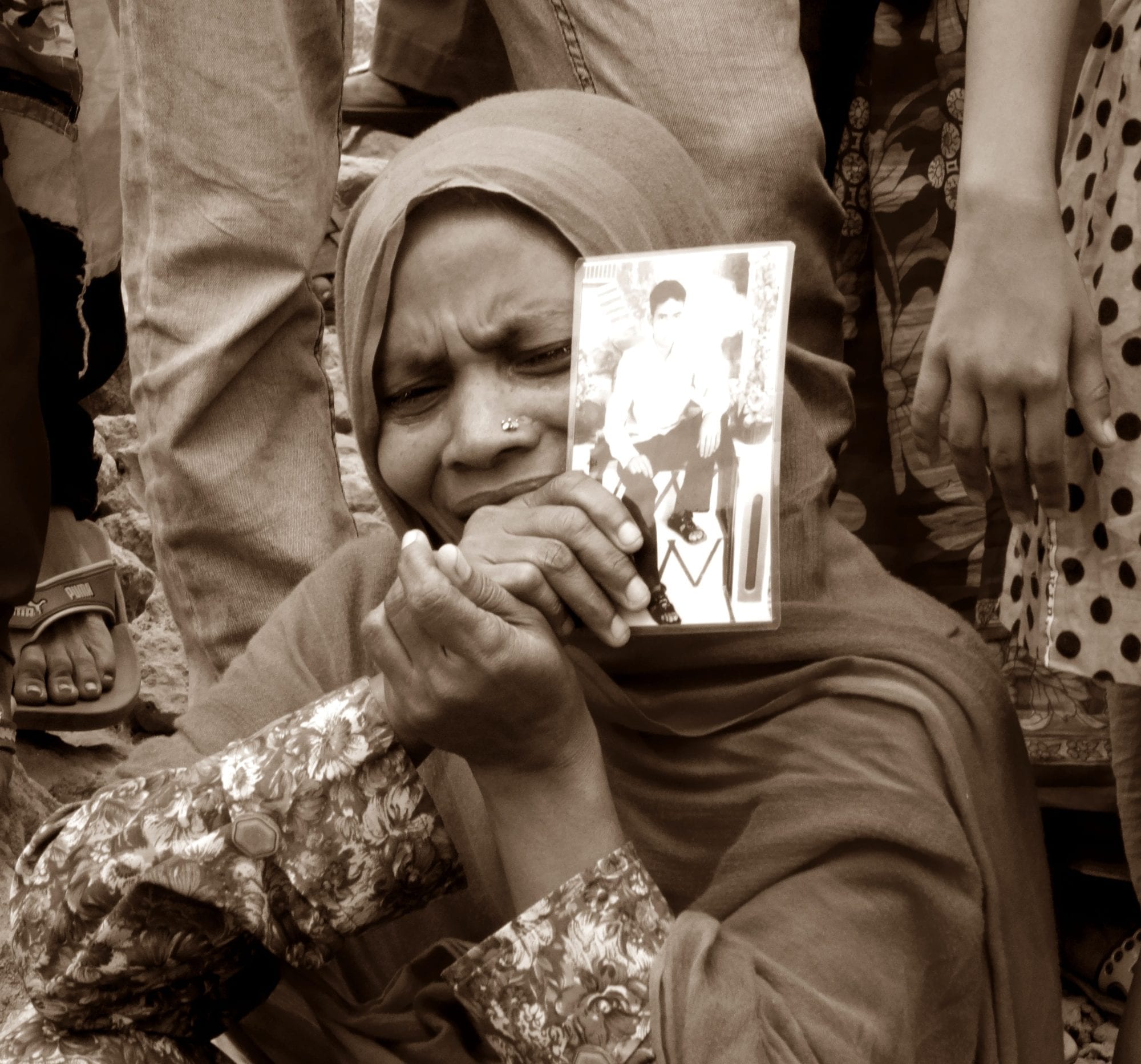
Jun 2, 2015
Reports that at least 41 government officials have been charged in the deadly 2013 collapse of Rana Plaza in Bangladesh “represent a long-delayed step toward justice,” says Solidarity Center Asia Regional Program Director Tim Ryan.
“Finally, after more than two years, the Bangladesh government is moving toward holding accountable those who were responsible for the deaths and injuries of hundreds of women and men toiling for pennies in those five garment factories,” Ryan says. “Rana Plaza was the Bangladesh’s worst-ever industrial disaster, and ensuring the justice process works is the absolute minimum the government can do for those who lost loved ones or were injured in the Rana Plaza disaster.”
Sohel Rana, the owner of the building; his parents, the owners of several factories in the building; and at least a dozen government officials were formally charged yesterday, according to the New York Times, citing a state prosecutor, Anwarul Kabir, who is part of the legal team that will pursue the case. At least 17 individuals have been charged with murder, while others face lesser charges, like violating building codes.
More than 1,100 garment workers, mostly women, were killed when the multistory Rana Plaza building pancaked on April 24, 2013. Thousands more were severely injured, many of them now unable to work and support their families. The building housed five garment factories.
A Bangladesh government inquiry in May 2013 concluded that substandard construction materials and the vibration of heavy machinery in the five garment factories were prime triggers of the building’s collapse. Sohel Rana, a prominent leader in the nation’s ruling party, was arrested shortly after over the disaster as he tried to flee to India.
A structural engineer inspecting the building the day before it collapsed found structural cracks, and retail workers in the building were told to stay home. Despite the engineer’s warnings, Rana told factory operators the building was safe. Factory owners then demanded workers return the next day and work; some were threatened with the loss of a month’s pay if they did not go back to the factory floor.
If convicted, the accused could face the death penalty, according to the New York Times, citing Bijoy Krishna Kar, the investigating officer who filed the charges on Monday.
Bangladesh garment factories are notoriously unsafe. Although Rana Plaza served as wake-up call to authorities, factory owners and Western brands, who are now taking steps to remedy the situation, workers still are injured or die on the job. According to data gathered by the Solidarity Center in Bangladesh since November 2012, the garment sector has seen at least 84 fire incidents injuring more than 900 workers and killing more than 31 workers.
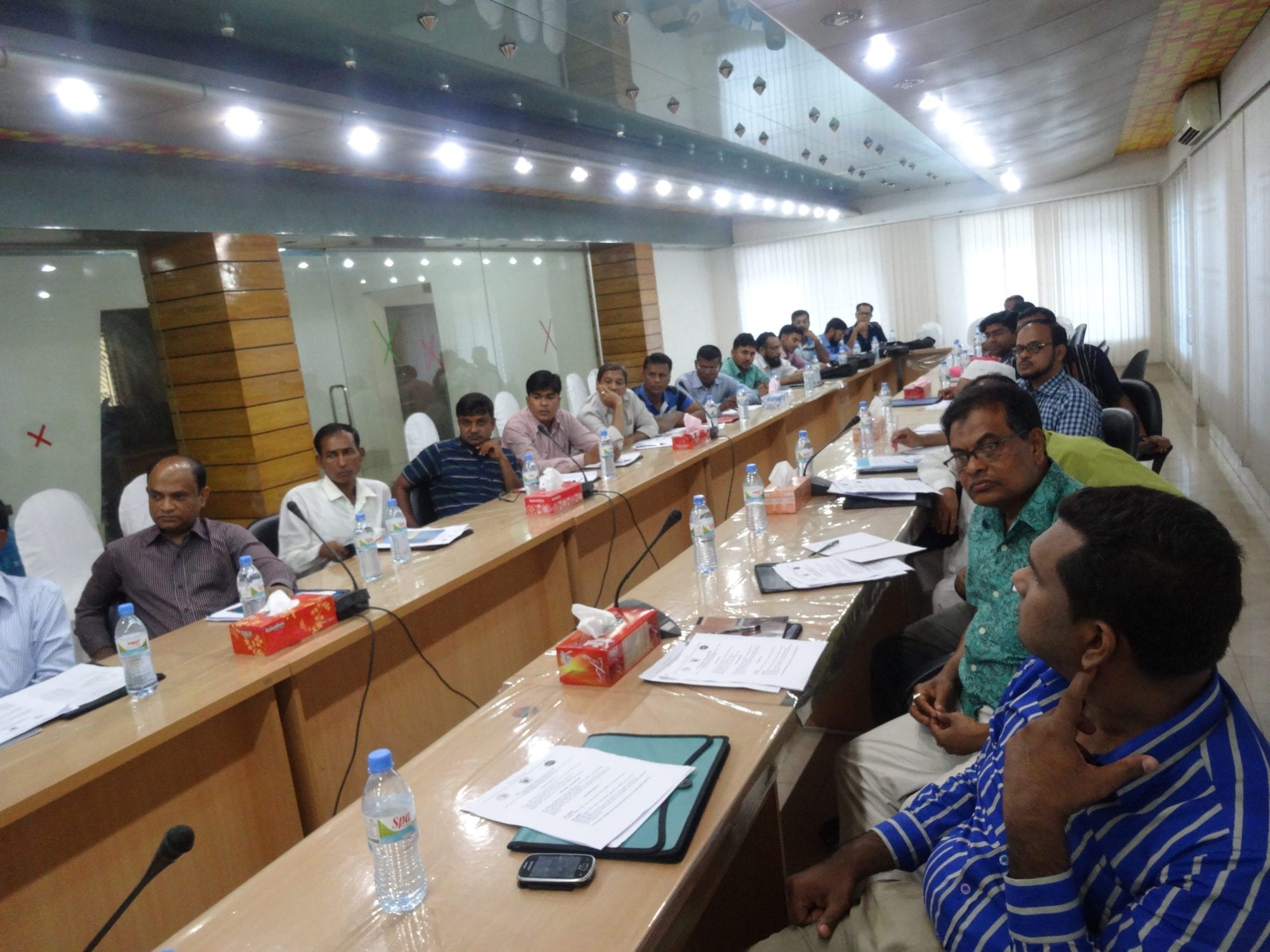
May 14, 2015
Bangladesh shrimp industry owners, management officials and labor and human rights activists discussed and debated the dispute resolution process in the country’s shrimp industry at a recent workshop organized by the Solidarity Center, the Bangladesh Frozen Foods Exporters Association (BFFEA) and Bangladesh Shrimp and Fish Foundation (BSFF).
The alternative dispute resolution process was instigated in 2013 when BFFEA, BSFF and the Solidarity Center signed a groundbreaking memorandum of agreement (MoA).
Under the MoA, shrimp industry owners and managers agreed to implement worker rights according to Bangladesh labor law and International Labor Organization (ILO) core labor standards and to give the nearly 1 million shrimp workers who toil during peak season across the supply chain the right to form trade unions.
Among the participants, who included production managers, compliance officers and managing directors, BFFEA Senior Vice President Golam Mostafa said he hoped the dispute resolution mechanism in the shrimp industry would be an example other industries will follow. Solidarity Center-Bangladesh’s MoA project consultant and former secretary of Bangladesh government AKM Zafar Ullah Khan said that alternative dispute resolution and participation committee is important for a sustainable shrimp sector.
Solidarity Center’s Bangladesh staff also addressed questions about pending cases, worker compensation and the overall process.
Alonzo Suson, Solidarity Center Bangladesh country program director, stressed the need for promotion, outreach and education to make workers aware of the alternative dispute resolution process. Suson praised the MoA and said he had heard that labor-management relationships were improving because of the joint initiative.
The Solidarity Center began working with Bangladeshi nongovernmental organizations in 2005 to look at ways to ensure the rights of shrimp workers are protected at the workplace. In 2012, the Solidarity Center issued its second in-depth report on the issue, “The Plight of Shrimp-Processing Workers of Southwestern Bangladesh.”
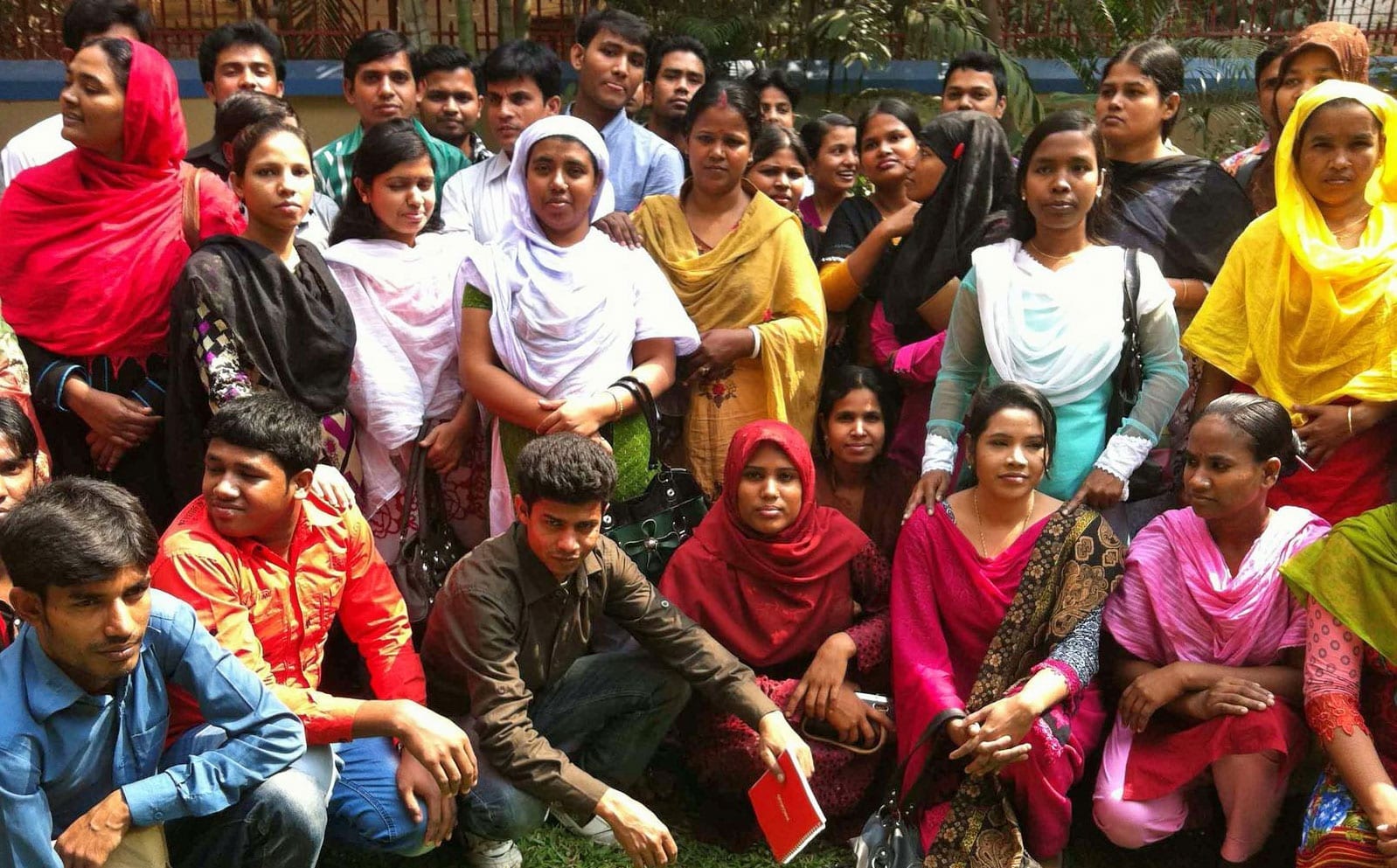
May 13, 2015
When a garment factory union organizer in Gazipur, Bangladesh, was beaten in April while meeting with workers about their nascent union, the Solidarity Center Bangladesh Worker Rights Defense Fund was there to help him cover the medical care he needed, an expense he otherwise could not have afforded.
The Solidarity Center launched the Bangladesh Worker Rights Defense Fund in April 2014, following an increase in violence and harassment against workers, many of them young women, who were seeking to form unions to protect their health, dignity and rights on the job. Donations of more than $15,500 over the last year from individuals and organizations have helped to provide costly medical treatment for organizers beaten or attacked while speaking to workers about their rights, and temporary food and shelter for workers fired for trying to improve their workplace.
Following the Rana Plaza collapse in April 2013 and other high-profile catastrophes, the Bangladesh government began recognizing worker rights and the country’s own labor laws, allowing workers to form representative unions. Garment workers have since established more than 300 factory-level unions and seen more than 15 collective bargaining agreements signed.
But in the past year, violence and retaliation against workers seeking safe workplaces, protection from sexual harassment and better-than-subsistence-level wages has escalated. “A severe climate of anti-union violence and impunity prevails in Bangladesh’s garment industry,” according to a March International Trade Union Confederation (ITUC) report. “The violence is frequently directed by factory management.”
When garment workers are allowed to form unions, they have the opportunity to create positive changes at their workplaces.
There’s still time to donate to the Bangladesh Worker Rights Defense Fund.
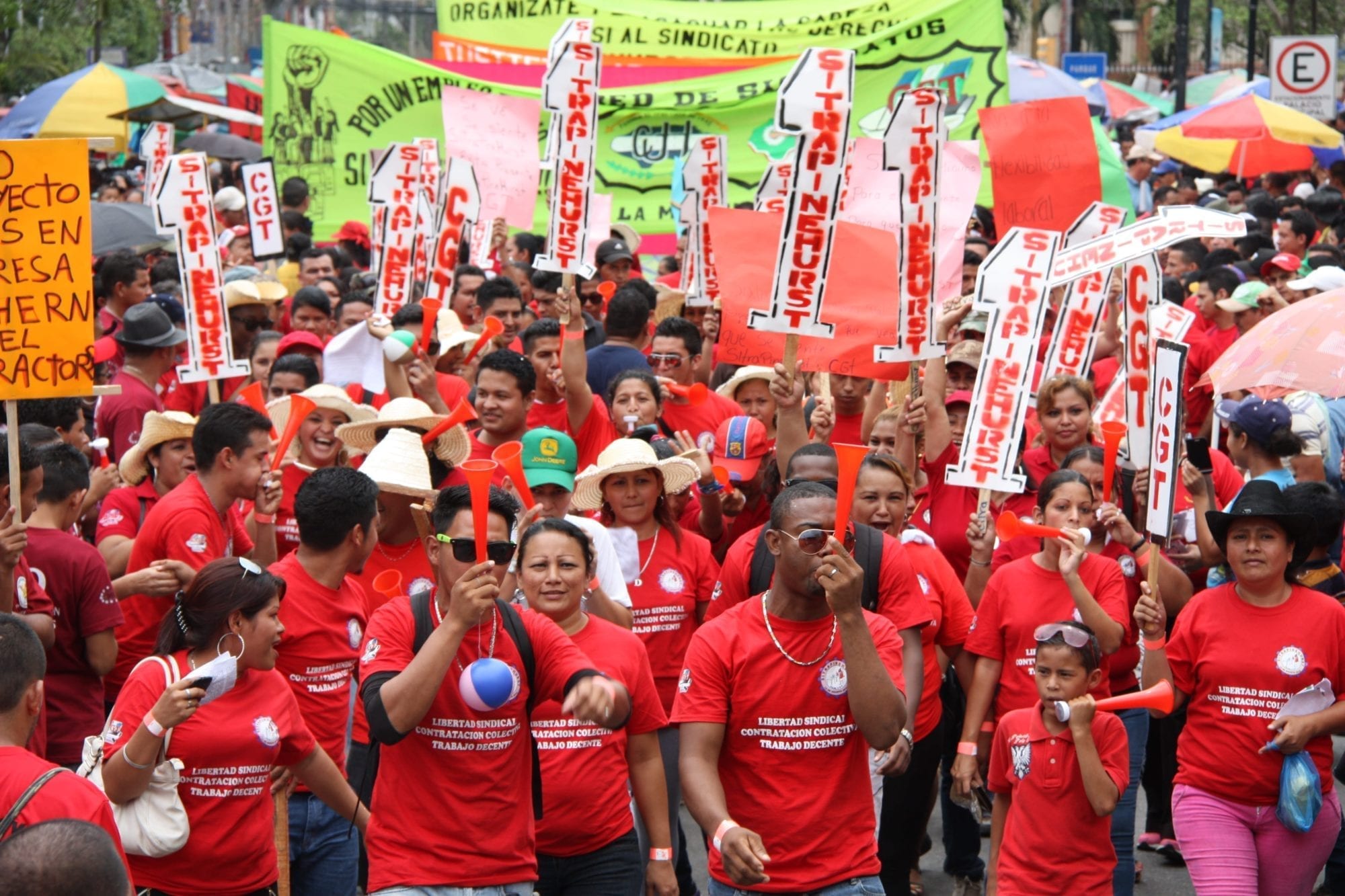
May 5, 2015
Hundreds of thousands of workers and their unions around the world marked International Workers Day May 1. For many, the day provided a time to push for living wages and safe workplaces. Yet this year, governments in some countries like Bahrain and Swaziland banned May Day celebrations or threatened workers with retaliation if they turned out—and some brave workers defied these edicts to exercise their freedom to gather in public spaces.
Elsewhere, workers like those in Bangladesh who often are prevented from forming unions or exercising their fundamental worker rights, called for the freedom to join unions and correct workplace injustices.
Sumi Begum, 25, a Bangladeshi garment worker, says that she and other workers at her factory have not received salaries or overtime pay for the past two months, but they cannot raise the issue with the manager because they fear they would be terminated if they did so.
“Garment factories that have union are not facing these kinds of problems,” she says. “The condition of those garment industries is much better than ours.”
[portfolio_slideshow id=4427]
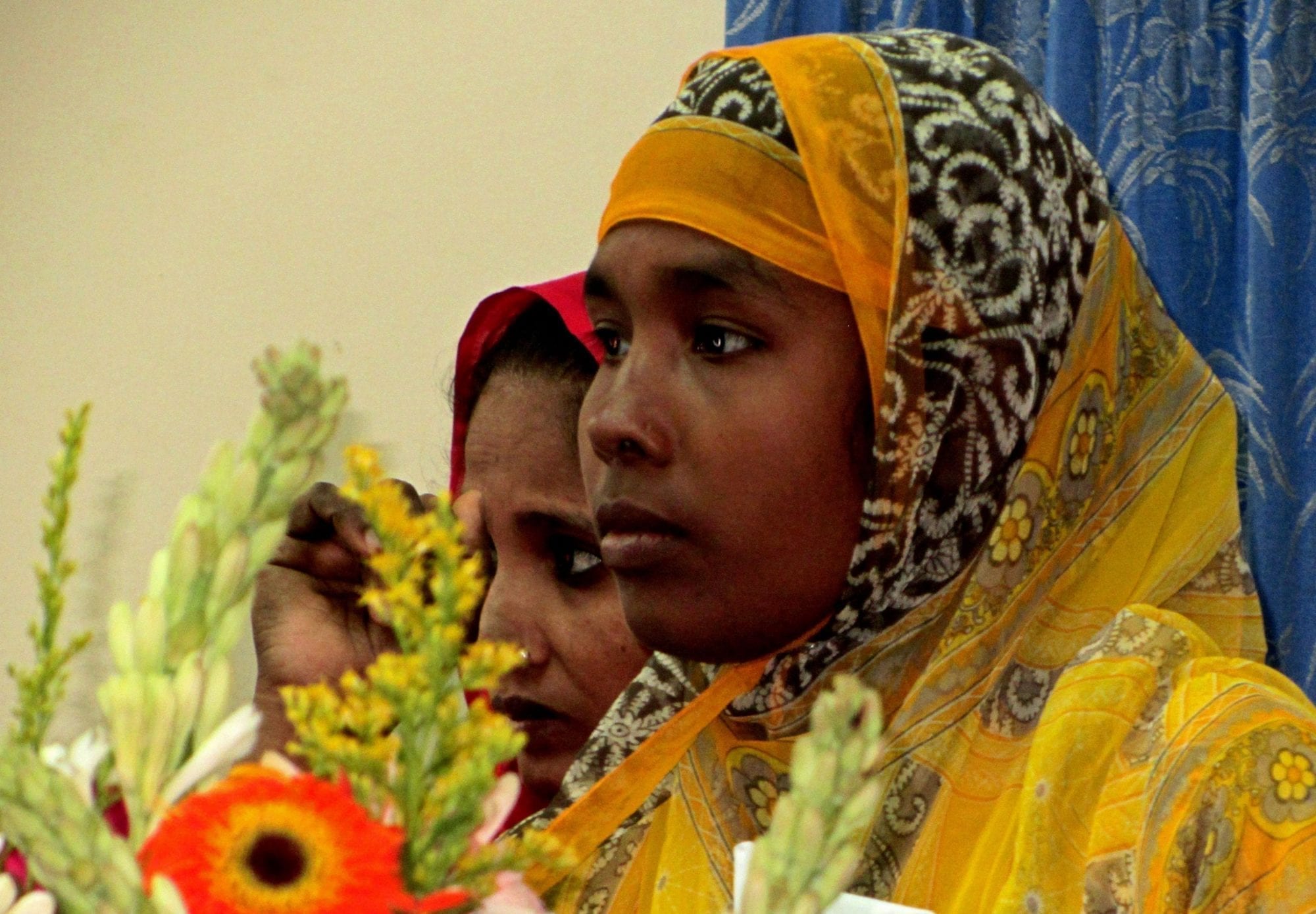
May 4, 2015
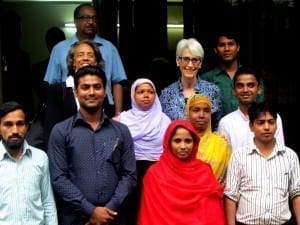
U.S. Under Secretary of State for Political Affairs Wendy Sherman met with garment workers on May Day at Solidarity Center’s Bangladesh office in Dhaka. Credit: Balmi Chisim
Bangladesh garment union leader Arman says this past May Day was extra special for him. “I will remember this day the rest of my life. I never imagined that I could share our struggles with a high U.S. official,” says Arman, 26, president of a garment factory union. Arman and seven other union leaders met with U.S. Under Secretary of State for Political Affairs Wendy Sherman at Solidarity Center’s Bangladesh office in Dhaka. Sherman is the fourth-ranking official at the U.S. State Department.
The high-level gathering also included U.S. Ambassador Marcia Bernicat; U.S. Special Representative for Commercial and Business Affairs Scott Nathan; Deputy Assistant Secretary of State for Democracy, Human Rights and Labor Steven Feldstein; and senior officials from the U.S. Embassy and U.S. Agency for International Development.
Tania, 23, a union leader, told the group that garment workers who formed unions saw benefits in many areas. Another union leader, Meem, 24, said some union leaders have been threatened by factory managers for forming unions. Ahsan, 26, described how garment workers are increasingly facing government obstacles when seeking to register their unions. Unions are required to register with the Department of Labor to legally operate.
In fact, official rejection of union applications has increased from 19 percent in 2013 to 56 percent so far in 2015, according to data compiled by the Solidarity Center in Bangladesh. Despite garment workers’ desire to join a union, they increasingly face barriers to do so, including employer intimidation, threatened or actual physical violence, and illegal firings. Regulators also seem unwilling to penalize employers for unfair labor practices.
Yet workers at Bangladesh’s more than 5,000 garment factories have made the country the world’s second-largest garment exporter, after China. Some 80 percent of Bangladesh’s garment exports—a $24 billion per year industry—are destined for the United States and Europe.
Solidarity Center Bangladesh Country Program Director Alonzo Suson told the gathering that although more workers have been allowed to form unions and improve their working conditions in the past two years, the government’s increased rejection of union registrations is concerning.
Solidarity Center staff updated the group on its ongoing fire safety program for garment workers, and gave examples of how union leaders applied the training during the recent earthquake, which was centered in Nepal but also felt in Bangladesh.
In her remarks, Sherman observed that most of the union leaders are young and this makes her optimistic about the prospect for improving Bangladesh’s garment industry. She praised the leaders for representing their co-workers in the face of many challenges. Sherman said that the United States was working with the government, brands, factory owners and unions to help build respect for workers’ safety and rights.






